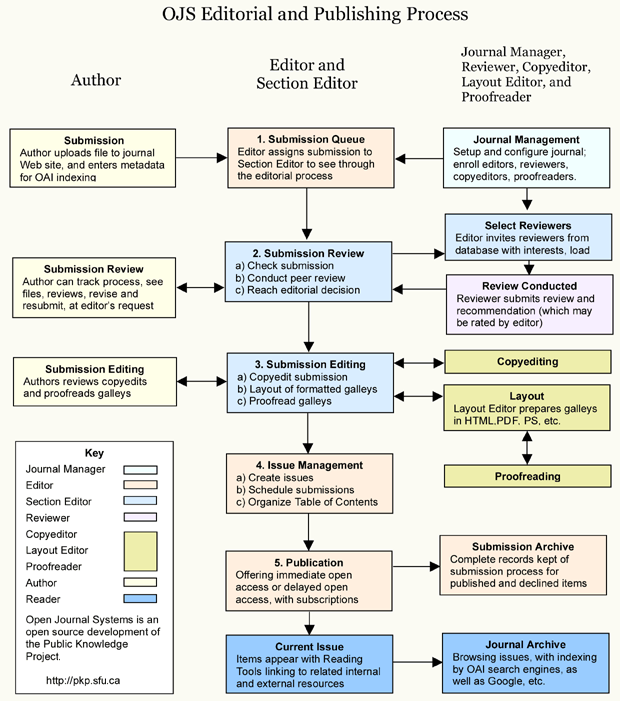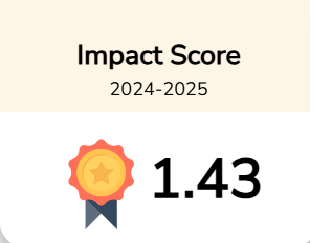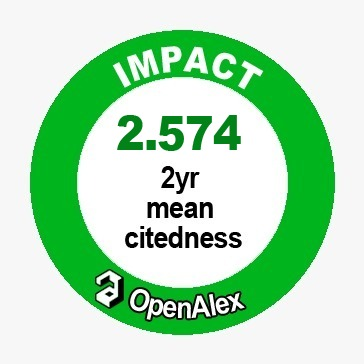Peer Review Policy
We are committed to the prompt evaluation and publication of fully accepted papers in the Nurture (Online ISSN:1994-1633/Print ISSN:1994-1625). To maintain a high-quality publication, all submissions undergo a rigorous process. Characteristics of the peer review process are as follows:
- Manuscripts with contents outside the scope of the journal will not be considered for review.
- Submissions usually will be reviewed by two experts suggested by the editorial board.
- In addition, Academic Editors will have the option of seeking additional reviews when needed. Authors will be informed when Academic Editors decide further review is required.
- All publication decisions are made by the journal's Editors-in-Chief on the basis of the reviewers' reports. Authors will be notified promptly if their papers are not accepted.
- All submitted manuscripts are treated as confidential documents. We also expect our Board of Reviewing Editors and reviewers to treat manuscripts as confidential material.
- Editors and reviewers involved in the review process should disclose conflicts of interest resulting from direct competitive, collaborative, or other relationships with any of the authors, and remove themselves from cases in which such conflicts preclude an objective evaluation. Privileged information or ideas that are obtained through peer review must not be used for competitive gain.
- Nurture is following double blind peer review process. Our peer review process is confidential and identities of reviewers cannot be revealed.
Reviewers’ Responsibilities
(http://publicationethics.org/files/u7140/Peer%20review%20guidelines.pdf)
If Nurture’s Editor has invited you to review a manuscript, please consider the following items:
- Reviewing manuscript critically but constructively and preparing detailed comments about the manuscript to help authors improve their research;
- Reviewing multiple versions of a manuscript as necessary;
- Providing all required information within established deadlines;
- Making recommendations to the editor regarding the suitability of the manuscript for publication in the journal;
- Declaring to the editor any potential conflicts of interest with respect to the authors or the content of a manuscript they are asked to review;
- Reporting possible research misconducts;
- Suggesting alternative reviewers in case they cannot review the manuscript for any reasons;
- Treating the manuscript as a confidential document;
- Not making any use of the work described in the manuscript;
- Not communicating directly with authors, if somehow they identify the authors;
- Not identifying themselves to authors;
- Not passing on the assigned manuscript to another reviewer;
- Ensuring that the manuscript is of high quality and original research;
- Informing the editor if he/she finds the assigned manuscript is under consideration in any other publication to his/her knowledge;
- Writing a review report in English only;
- Authoring a commentary for publication related to the reviewed manuscript.
What should be checked while reviewing a manuscript?
- Novelty;
- Originality;
- Scientific reliability;
- A valuable contribution to science;
- Adding new aspects to the existed field of study;
- Ethical aspects;
- Structure of the article submitted and its relevance to authors’ guidelines;
- References provided to substantiate the content;
- Grammar, punctuation, and spelling;
- Scientific misconduct.
The detailed Journal peer review process is based on the following chart:

Note:
The Nurture (Online ISSN:1994-1633/Print ISSN:1994-1625) is a member of CrossCheck. All manuscripts submitted will be checked for plagiarism (copying text or results from other sources) and self-plagiarism (duplicating substantial parts of authors' own published work without giving the appropriate references) using the CrossCheck database. Plagiarism is not tolerated.
For more information about CrossCheck/iThenticate, please visit http://www.crossref.org/crosscheck.html.





